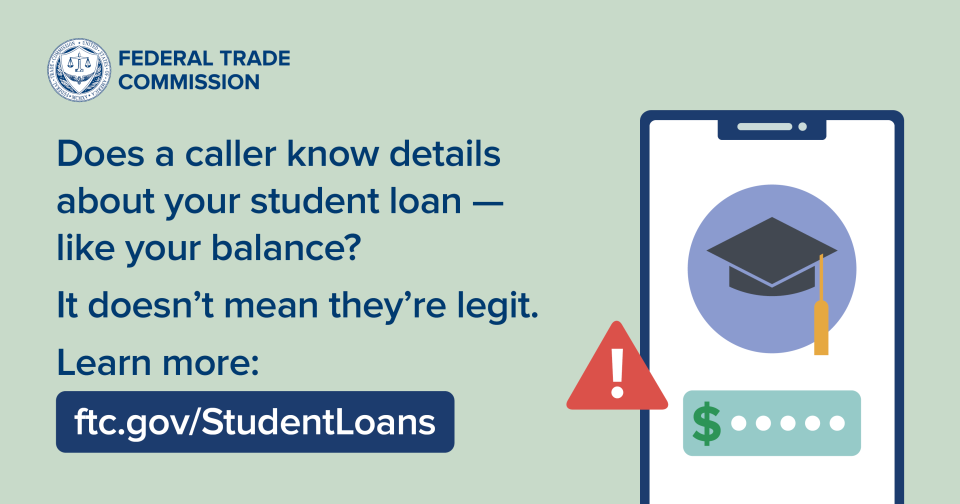 With the recent announcement of the one-time federal student loan debt relief plan, we knew scammers were on their way. Well, they’re here. The application for debt relief is rolling out any day now, so focus on getting information directly from the Department of Education.
With the recent announcement of the one-time federal student loan debt relief plan, we knew scammers were on their way. Well, they’re here. The application for debt relief is rolling out any day now, so focus on getting information directly from the Department of Education.
But what do these student loan scams look like?
You might get an offer that seems real because they say there’s an affiliation with the Department of Education or your loan servicer — but it’s fake. The person who contacts you to “help” might even know something about your loan (your balance, or that you recently consolidated) — but that’s a scammer who’ll ask you to confirm that info as a way to get you to share even more details they can use. The “debt relief application” they give you is sometimes a direct deposit or Power of Attorney form — which lets the scammer start taking money from your bank account. And your (ahem) helper might ask for your FSA ID, or access to your account — but don’t share either. If you can’t get in to see your loan balance, you can’t tell that a company might be charging you while your real student loans go unpaid (and unforgiven).
Whatever the story, here’s how to avoid student loan scammers:
- Don’t pay anyone to help you apply for loan forgiveness. Nobody can get your loans forgiven faster, even if you pay them. This program is completely free — and the only way to apply is at StudentAid.gov. Sign up for Department of Education updates to find out when the application officially opens.
- Don’t give away your FSA ID login information. If anyone says they need your FSA ID to help you, that’s a scam. Don’t do it. They can cut off contact between you and your servicer — and even steal your identity.
- Don’t trust someone who contacts you saying they're affiliated with the Department of Education. Scammers use official-looking names, seals, and logos. They promise special access to repayment plans. None of that is real. If you’re not sure if the “offer” is legit, hang up and call your federal student loan servicer directly.
Have you spotted one of these scams? Tell us about it at ReportFraud.ftc.gov.




